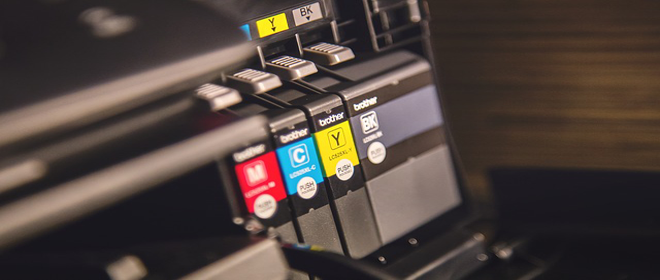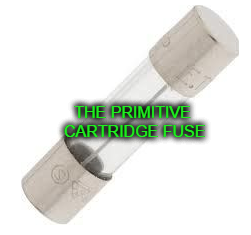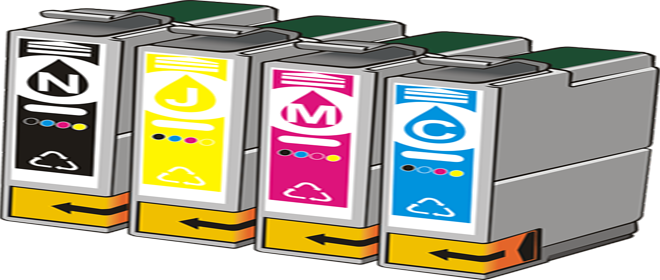Ink Cartridge Printer Chips: Let the Chips Fall Where They May
Jan 20, 2016

Refurbished ink cartridges cause a lot of head-scratching and remarks like, “huh, what”. There are a lot of companies out there and private sellers who buy the cheapest ink cartridges they can dig up from some dust-covered bin in the back of a bleak Beijing warehouse, clean them in a sloppy manner with a moist rag, fill them half way with watered down ink, and sell them as refurbished ink cartridges with all the old internal parts intact. Then the consumer uses them, hates them, and spreads the word that refurbished ink cartridges are rubbish and only OEM cartridges are reliable.
There are a number of components and internal working parts inside ink cartridges that determine their quality. When you buy refurbished ink cartridges and toner make sure the company publishes their refurbishment / remanufacturing process, and don’t buy unless the cartridge is backed by a warranty. Companies like Needink.com prove their sterling reputation by offering full transparency into their refurbished ink cartridge process with a one-year warranty slapped on every product. But more so, our cartridge chips are Sprint fresh! This article will pay special attention to the printer chip and its importance when it comes to offering the highest quality in printing.
The
History of Ink Cartridge Chips

You may have a greater appreciation for printer chip technology if you gain a basic understanding of this item’s history. Cartridge chips have significantly evolved over the last 20 years. Back in the days of old electrical fuses existed before chips came to fruition. These fuses were dirt-cheap and very easy to replace and reset. The first cartridge to use a chip was the TEC 1305 that made its star appearance in 1992. Then Xerox launched the N24 shortly after—both are two primitive and simple cartridge chips that would prove to pave the way for the sophisticated inkjets we use today. Finally, HP and Lexmark caught on and made slightly more advanced cartridge chips like the HP LaserJet4500 chips and the Lexmark T520—the cartridge chip that really caused an evolution that swept up all the ink cartridge manufacturers at once!
How do Cartridge Chips Work?
With only a few minor exceptions, most ink cartridge chips work via contact. This means they have plated pads on boards generally made from gold or copper that touch contacts within the printers relaying the ink cartridges information. (And on a side note, yes, there are crazy gold scrappers out there that pry them out for some merge amount of money. We have no idea how muck one standard chip brings, but we are pretty sure that it won’t even buy a sip of someone’s beer).
Another style of chip is the Radio Frequency variety that broadcasts a small signal through an antenna that is generally in the form of a hard-wire coil, or a flexible thin circuit that is affixed to a label. Each manufacturer has a unique look for their cartridge chips, but all function, more or less, in the same manner.
How Important Are Chips When It Comes to Refurbished Cartridges?
You have probably heard the old expression, “Let the chips fall where they may”. This means what happens, happens. A lot of refurbished ink cartridge shoppers embrace this philosophy without even being aware of it. They think that the downside to saving money on refurbished ink cartridges is playing the “hit or miss game” when it comes to buying an inkjet on the cheap that performs at OEM standards. However, nobody should ever play this game because there are a number of refurbished ink cartridge companies out there, Needink.com included, that publish their refurbishment process. Using a cartridge with a new chip is key to getting an inkjet that performs like the expensive wallet busters you buy from large office supply stores. .
All chips are coded with an encryption, and when the same chip has been used multiple times past its yield, its quality begins to go downhill like Kanye West’s integrity. The encryption calculates the job and response from the printer, so when you are using a chip that has been around the block multiple times, you are virtually engaging your products in a botched communication job reminiscent of someone trying to speak Swahili to a guy husking corn on a farm in Iowa.

Unless you have proper tools to test the chips, you have no way of knowing how often the chip has been used; it is impossible to tell by the naked eye alone. So when crooked ink cartridge sellers use the same chips again and again, the quality is terrible and a large number of consumers automatically assume all refurbished cartridges are bad.
Important Questions to Ask When Buying Ink Cartridge Printer Chips
When you buy refurbished ink cartridges be sure to ask the seller if the chips are new. You can generally trust an online ink cartridge company if:
- They have been in business for a long time
- Have a full website and not some shoddy web page
- Offer a warranty on each cartridge
- Have a customer service department that can be reached by phone during normal business hours
- Is active in marketing and promotions (this way you know they aren’t going anywhere)
- Has a published physical address
- Is active on Social Media
- Allows customer reviews on their website
If your ink cartridge company covers all of these bases then it is pretty safe to say their chips are virgin-fresh, otherwise they would not be able to stay in business! Don’t let fate dictate where the chips fall; be assertive, exercise your rights as a consumer, and use your buying power to tell those bad chips where they can go!


